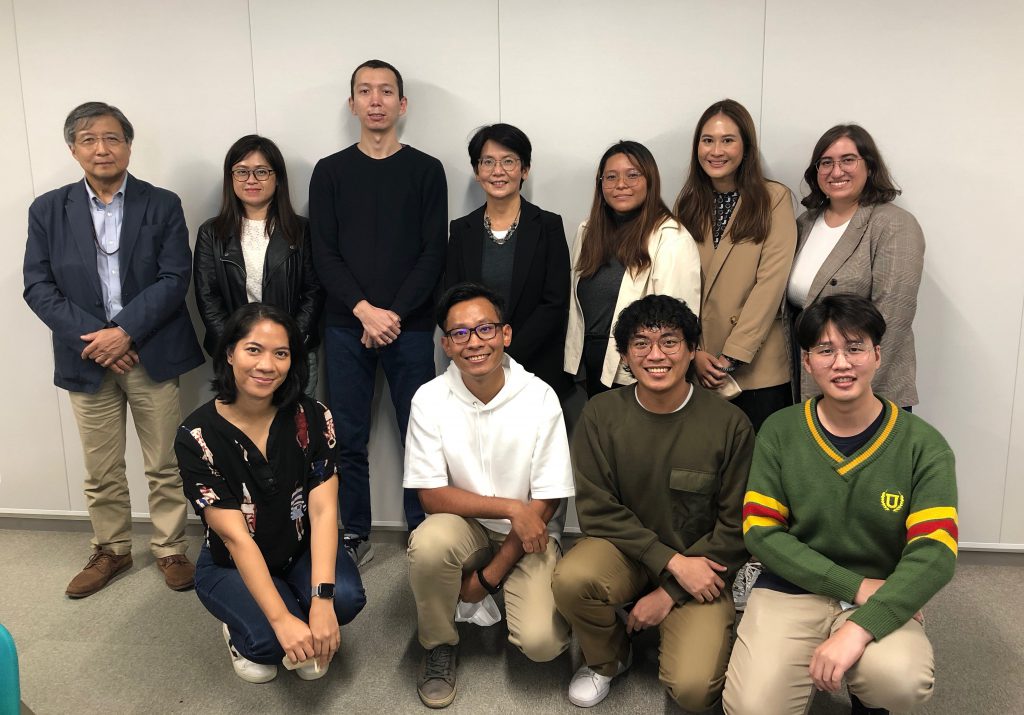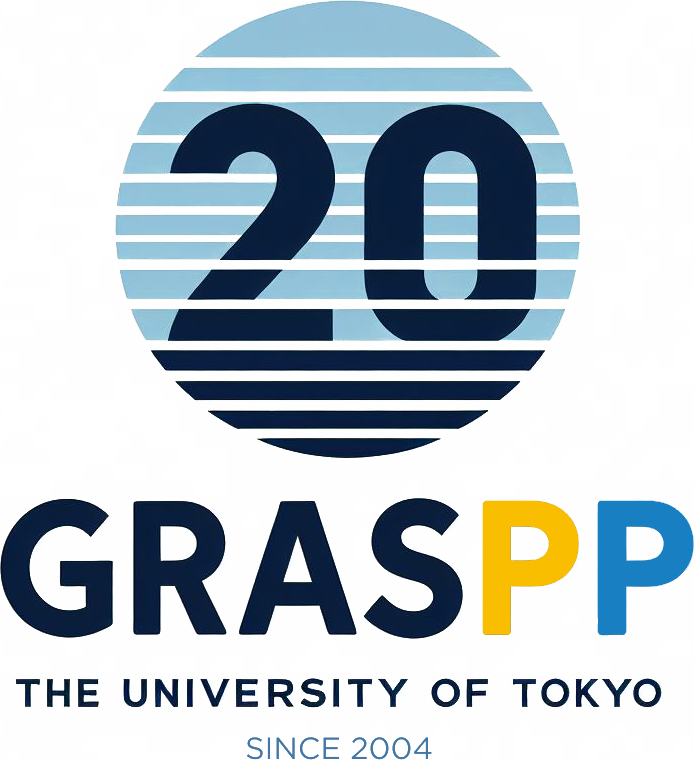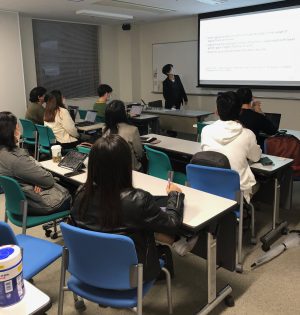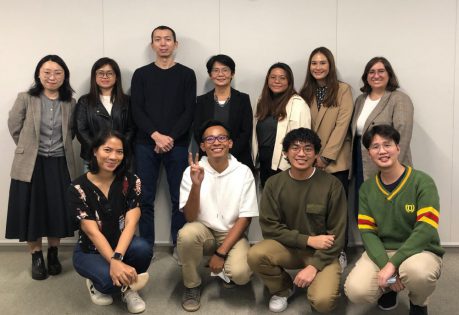This news article provides students’ feedback on the GraSPP Research Seminar titled “Fintech: Financial Inclusion or Exclusion” on October 13, 2022.
Motivation for the seminar
We have been facing various challenges in the financial sector. One such challenge is financial inclusion, which is shared among both developed and developing countries. To address this challenge, policymakers highlight the potential of fintech. However, its full potential is likely achieved only with society’s enhanced financial and digitalization literacy. To find a clue to addressing this challenge, we invited Ms. Yoke Wang Tok to share her insights into the question, “Is Fintech always inclusive?” She looked into whether certain groups were unintentionally left behind by digitalization.

Students’ feedback
“The opportunity to join this special seminar with Ms. Tok was very rewarding. Her research on financial inclusion targets relevant questions about the role of fintech in this process. On the one hand, fintech has a positive correlation with financial inclusion. Ms. Tok’s research results show that fintech can help lower the rural-urban divide. On the other hand, fintech is not always inclusive. There is evidence that some groups that do not have access to new financial solutions can be left out, such as females. These results raise awareness about the current challenges and opportunities in promoting financial inclusion. A specific point in Ms. Tok’s research that surprised me was the lack of evidence about the role of fintech in reducing the gender gap. On this matter, Ms. Tok offered a fascinating insight into the importance of considering more variables, such as differences in behavior, cultural norms, financial literacy, and other elements. Based on this experience, I hope Ms. Tok can come to GraSPP again soon and share more of her expertise and research with all students.”
Kamila Aben Athar (a second-year master’s student at GraSPP)
“Thank you for organizing an event like this! It’s always an excellent experience to hear from experts. This particular topic is especially interesting for me since ‘fintech’ is the trend nowadays. I was intrigued by the information and findings shared by Ms. Tok in her presentation. It answered many of the questions I had in mind, being a fintech user myself and having experienced both the good and the ‘inconvenient’ sides.”
Millicent Faith Tomada (a second-year master’s student at GraSPP)
“The paper and presentation emphasize important policy considerations related to financial inclusion. The results validate the role of various online financial services platforms in increasing the access of the poor and those in rural areas. Meanwhile, the paper highlights that even the emergence of these digital services could not address the low engagement of women and the aged. These results give rise to critical policy questions. How do we efficiently allocate our limited funding to entice the ‘missing’ population to participate and avail of financial services? Should we pour the money into financial literacy programs? If so, what kind of information should these programs contain to essentially change the perspective of those who don’t want to use/avail of financial services? To answer these questions, further research is needed; so that policies are well-targeted, and implementation is efficient. Thank you for the opportunity to participate in the seminar. I am looking forward to the next one!”
Rachelle Gladys M. Audar (a second-year master’s student at GraSPP)
“It was beneficial that the presentation on financial inclusion focused on setting the background on the current state of the use of fintech across countries, then on the implications of the results of the research done on the topic. I was very interested in the gender gap component in the rich discussions, especially what Ms. Yoke Wang Tok mentioned about the financial apps currently not tailored to maximize use by women. Also, from the seminar, I learned that measuring the penetration/extent of fintech use should go beyond solely looking at the share of the population using traditional financial channels. I just learned that financial transactions are actually done over a cellular connection (not over the internet) in some African countries. It was a very informative seminar and an interesting topic. I do hope GraSPP will have more opportunities to host and organize similar events in the future.”
Reynaldo Delos Santos Jr. (a second-year master’s student at GraSPP)
“The seminar is beneficial for me as a central banker. It presented the facts, conditions, and potential ways digital banking can help increase financial inclusion. Moreover, I truly appreciated the speaker since she had logical opinions for all questions discussed in the seminar.”
Suriyachon Chitsupang (a second-year master’s student at GraSPP)
“It was a great seminar regarding the research result and the discussion produced. For the research result, I found surprisingly that disruption like fintech cannot effectively promote financial inclusion in gender compared to others. For me, further social implications should be implemented beforehand so that the gender can grasp the leapfrog to closer the disparity amidst the questions on the diversity of local opinion or belief and the authority in charge. All in all, the discussion and presentation were fruitful and successful. I am looking for further follow-up discussion, which I believe will be beneficial.”
Tanawat Papaeng (a first-year master’s student at GraSPP)
“Thank you for arranging this interesting and informative research seminar, ‘Fintech: Financial Inclusion or Exclusion.’ It was an excellent opportunity to listen to the expert’s experiences, and I learned new knowledge about the topic. It is interesting to note that fintech contributes more to financial inclusion than traditional financial inclusion measures. What surprised me is that there was no impact on the gender divide, even though it significantly narrowed the rich-poor divide and rural divide using fintech. I believe the content and findings of the seminar would be helpful for policymakers or businesspeople in consideration of improving fintech-related policies for the people.”
Wint Wint Khaing Tun (a second-year master’s student at GraPP)
“I enjoyed the presentation and the follow-up discussion very much. Fintech is an important topic nowadays, and people often talk about financial inclusion thanks to the introduction of fintech, but hardly discuss the flip side, that is, the exclusion effect of fintech. Yoke Wang and her co-author noticed the ‘dark side’ of fintech and conducted empirical research. In particular, they focused on the effect of fintech on the gender gap, geopolitical gap, and income gap. Interestingly, they showed that fintech has no impact on reducing the gender gap. To maintain persistent and inclusive growth, policymakers should carefully address such inequality. During the discussion, students also as young government officials from developing countries such as the Philippines, Thailand, and Kazakhstan showed the development of fintech in their own countries. They also shared their concerns about financial stability, given the rapid introduction of new fintech tools and financial derivatives, and the relatively slow update of financial regulation. In all, the session was very productive and rewarding. It’s always nice to talk to the authors directly. I am very grateful for the opportunity to join the seminar.”
Yun Gao (Economist, IMF’s Regional Office for Asia and the Pacific, Ph.D. from GraSPP in 2022)
Presentation material
The views expressed by Ms. Yoke Wang Tok are her own as a co-author of “Fintech: Financial Inclusion or Exclusion” and should not be attributed to the IMF and its Executive Board or its management.
Tok, Yoke Wang, and Heng Dyna, “Fintech: Financial Inclusion or Exclusion”
https://www.imf.org/en/Publications/WP/Issues/2022/05/06/Fintech-Financial-Inclusion-or-Exclusion-517619
About the speaker
Ms. Yoke Wang Tok has more than 25 years of experience in the areas of economics, financial stability, international relations, training and curriculum development, and technical assistance. She has a wide network of central banking contacts in the Asia-Pacific region.
GraSPP invites Ms. Yoke Wang Tok as a visiting research fellow in October-November 2022.
Yok Wang’s professional positions include Principal Economist at the Monetary Authority of Singapore (1992-2010), Senior Advisor to the South-East Asian Voting Group Executive Director, IMF Board (2007-09), Program Director at Toronto Centre (2011-14), and Director, Central Bank and Public Policy, World Gold Council (2014-15) before joining IMF-Singapore Regional Training Institute.
Yok Wang has a Bachelor of Social Science (First Class Honors) from the National University of Singapore and an MPhil in Economics (Distinction) from the University of Cambridge.




